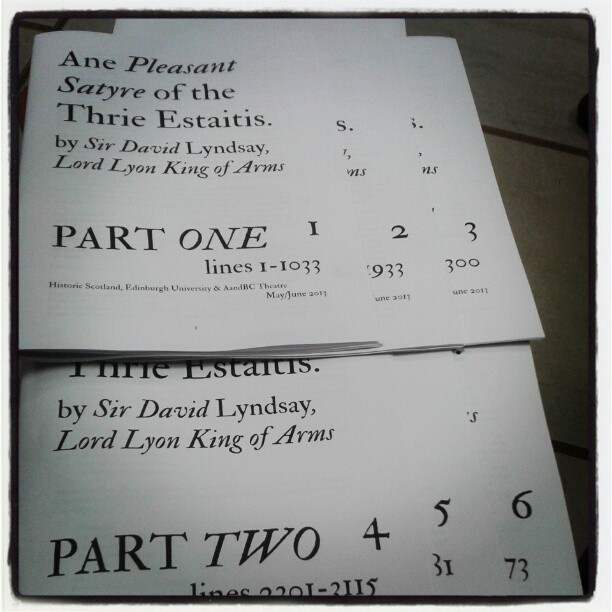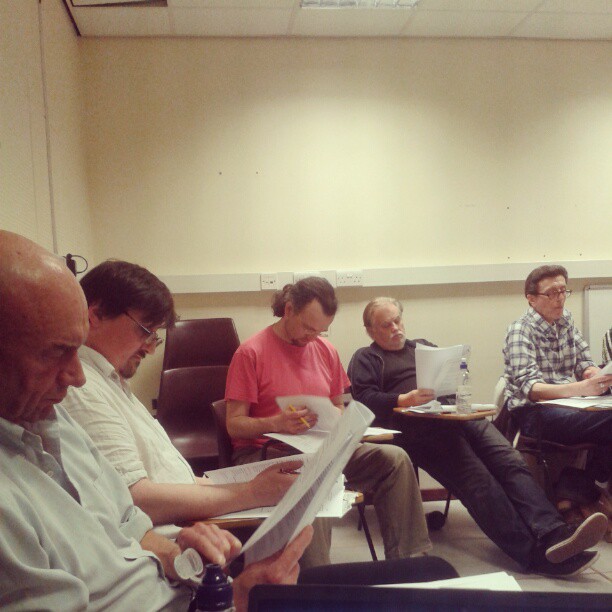
28 actors, academics, stage crew and a director gathered in what Gregory Thompson called a ‘underground bunker’ to begin work on A Satire of the Three Estates on the hottest day of the year so far – hopefully a good omen for our outdoor production.
Greg T gave the actors an introduction about the sort of research project they will be working on – saying that the type of knowledge yielded through rehearsal and performance is a different but as important form of knowledge as that gained by scholars through literary research. Tom Betteridge added that itâs just as valid, and should be valued as much as archival and traditional scholarship.
Greg T told the actors “We have one job. We have to make the text sing”, saying that every single word is as important as the next in the creation of David Lindsayâs story. He told the cast that they will be at a technical disadvantage as they will lack lighting and sound, but said that they will have music and what he called, the ‘human spotlight’, the rule by which an actor only looks at the person to whom theyâre speaking to help focus the audience’s attention.
Greg Walker and and Tom explained the importance of performing this play in its entirety from a historical and cultural perspective, and Greg T suggested the research significance of asking the question, ‘what is this play’ and seeing it as a much more sophisticated piece of work than recent productions might suggest when compared to other sixteenth-century drama. But he also claimed that our purpose is to ‘delight and intrigue the audience, and give them a sense of what it might have been like to see this play in the sixteenth century’.
The actress Gerda Stevenson, playing Good Counsel, brought up a recent Sunday Herald article on the commonweal which she had found of interest, and Tom responded that the very concept of the commonweal is a difficult one, meaning common-wealth but also -weal, with the health connotation that this entails. Therefore it is not just geographical or ideological but also about a sense of collectivity, raising questions about authority and its distribution.
We moved on to a read-through, managing to cover Part One (split into a more manageable 2 parts) and what we call the ‘interval play’ (otherwise known as the ‘Interlude’ in morning, and part 2 in the afternoon (split into 3 parts). Despite the text unsurprisingly representing something of a struggle at points in terms of some of its obscure meaning and construction, it was exciting to see life breathed into it by the actors. Part One was especially lively and the comic potential of the Vice triad became obvious. However, it was also evident that this is a difficult and occasionally clunky script which will need a good amount of actorly resource and skill to make it work as a piece of drama. Greg W said that the ‘scale of the task ahead’ was shown by the reading, while Tom thought it was primarily the end that presented a the most difficulty theatrically. Tomorrow we will start closer textual analysis on the play to start making sure every actor knows exactly what they are saying.







